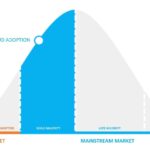How AI in Accounting is Redefining the C-suite
AI in accounting is unavoidable. Some tasks are time-consuming and low-value, taking time away from accountants that is better spent on high-value tasks. A few areas where AI penetration is undeniable are:
- Communication, because 64% of accounting pros are using it to refine emails.
- Task automation, where 41% of accountants are freeing up valuable time.
- Research, where 40% of accounting professionals use this tech to transcribe meetings, summarize them and list actionable items.
Across the board, C-suites are also experiencing role changes in their day-to-day work thanks to AI.
AI in Accounting and C-Suite Roles
Accounting firms are looking a bit different during this transitory period, where professionals are “figuring things out.” Your CFO and COO are still doing the same tasks that you hired them to do, but they have added:
- CFO: AI for CFOs is all about increasing a company’s return on investment and functional transformation. CFOs need to find the “sweet spot” for AI, where it helps enhance operations and offers reliable automation.
- COO: As a COO, the focus on AI is more refined, with an emphasis on security and governance. Risk appetite is also concerning because everywhere you look, there’s a new “AI” tool that you could invest in.
CEOs, CIOs and CTOs are also integral in all of the scaling and integration of AI to see where and how it fits in firms.
Clients may not see all of these moving parts behind the scenes, but they will benefit in many ways thanks to the firms that stay on top of artificial intelligence.
Where AI Shines in Accounting, So Far
AI must be beneficial to the firms that use it and the clients that they serve. Speed is a significant, undeniable benefit that everyone is talking about. Surveys suggest a 30% growth year-over-year in AI adoption in accounting through 2028.
Firms want to help ease the burden on already LEAN teams, and the immediate benefits are being seen in a few areas:
Accuracy Increases
Accuracy in accounting is crucial to the service clients receive. If your accountant’s accuracy is low, it:
- Requires additional rework
- Causes misclassifications
- Leads to errors and poor decision-making
AI can verify statements and figures faster than an accountant can manually. Reducing errors allows clients to be confident in their work and make smarter decisions.
Fraud Detection
Accounting fraud happens more than accountants want to admit. AI works exceptionally well at:
- Identifying anomalies in data sets
- Detecting outliers that may be signs of fraud
Artificial intelligence has the ability to reduce fraud in small businesses and enterprises, helping companies save money and reduce risks.
Efficiency Increases
Accounting teams have a lot of necessary work that must be completed for clients, which includes high-volume, routine tasks. AI in accounting is having a transformative impact on these tasks by eliminating a lot of the low-value work.
An accountant may need to verify these tasks or set up workflows, but once in place, the efficiency is undeniable.
For clients, the increase in efficiency means that accounting teams can focus heavily on the high-value tasks that allow them to provide more value to clients.
Decision-making
Big data has been around for decades. Analyzing this data in a meaningful way has proven to be challenging for everyone from startups to Fortune 500 companies, until now. Decision-makers can have AI analyze data to:
- Gain insights that are based on actual financials and internal data.
- Make timely decisions to save the company money and reduce risks.
- Surface deeper company insights that may not have been available with AI.
Compliance
Compliance is always evolving, and one of the challenges that accountants face is putting the right processes in place to handle new:
- Laws
- Standards
- Regulations
Predictive analytics helps accountants catch errors faster and reduce compliance risks. Anomaly detection also plays a major role in compliance, and as AI advances, it can monitor regulation changes, too.
For C-suites, the lower risk of compliance concerns is worth the investment in AI.
AI in accounting comes at a time when shortages are causing excessive workloads, lower satisfaction and wait times for clients. At Remond Accounting, we provide the high-value work our clients need with bookkeeping, controller, CFO, payroll and tech services.
As AI continues to change the industry, we remain committed to using this boost in productivity to provide the services that keep businesses confidently growing.
To learn more about how we can help you with your accounting needs, schedule a consultation now!










